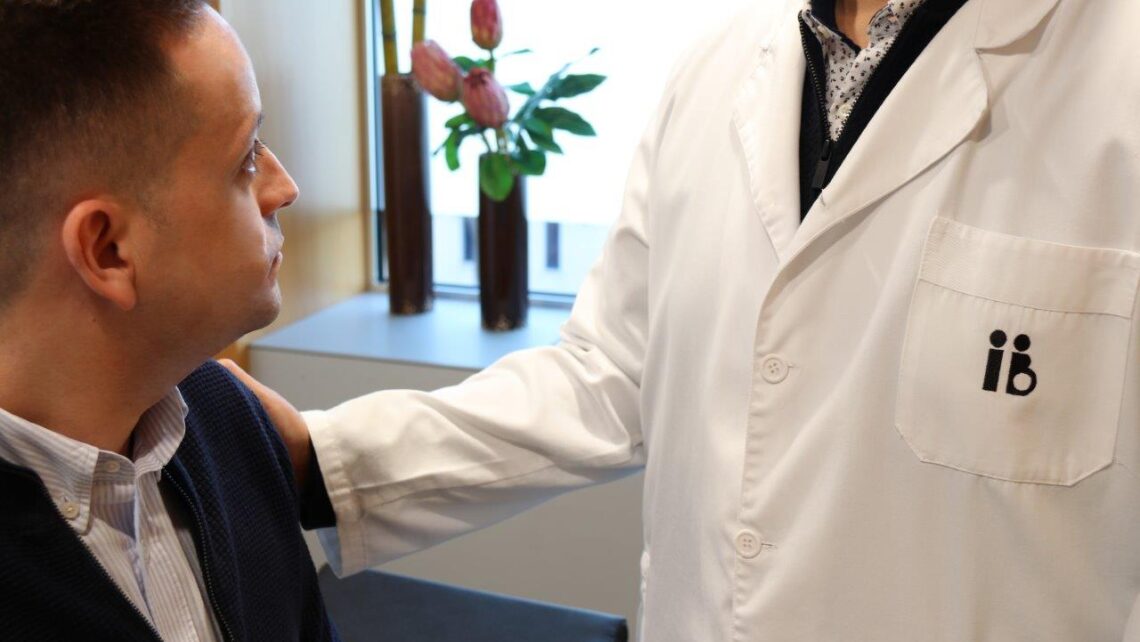
Treatment of Klinefelter´s Syndrome and fertility
Klinefelter’s Syndrome is considered the most common chromosomal abnormality in humans, with an incidence of 1 out of every 500 newborn males. Those affected by this syndrome have an extra X chromosome, which leads to primary testicular failure and therefore infertility and hypoandrogenism.
It is a chromosomal abnormality that only affects men and mainly causes hypogonadism. It is based on a genetic alteration that is developed by the incorrect separation of the homologous chromosomes during the formation of one of the parents’ gametes, although it is also possible in the first divisions of the zygote.
A person’s sex, as we know, is determined by the X and Y chromosomes. Males have the sex chromosomes XY (46, XY) and women have the sex chromosomes XX (46, XX). In Klinefelter’s Syndrome, males have at least one extra X chromosome, leading to a karyotype of (47, XXY) in 75% of all cases. However, approximately 20% of all cases are chromosomal mosaics with variations.
Índice
Associated alterations to Klinefelter Syndrome
Other problems that are often associated are:
- Decreased sexual libido in adulthood,
- Cryptorchidism,
- micropenis, hypoplastic scrotum or genital defects
- Gynecomastia
- underdeveloped muscles and reduced strength,
- Scarcity of facial and body hair as a direct result of the low concentration of testosterone.
From Instituto Bernabeu, leaders in reproductive medicine and specialists in finding individual solutions, we inform our patients about the specialised Reproductive Medicine Unit of the Urology and Andrology Department for the specific study and treatment of patients with Klinefelter Syndrome.
Would it be useful to change the Klinefelter’s Urological point of view to improve the fatherhood possibilities?

It is helpful to adapt the care for Klinefelter’s Syndrome from a urological point of view to improve the possibilities of fatherhood?
Up until a few years ago, Klinefelter’s syndrome was considered a model of absolute male sterility. We no longer think this is the case.
Treatment basis to treat infertile Klinefelter syndrome patients.
In our centre, we have specialised care to evaluate:
- the presence of functional sperm in the extraction of testicular matter,
- the pathophysiology of spermatogenic failure, and
- the advantage of looking for and freezing sperm found in ejaculate and/or testicular samples of adolescents and young adults.
What is this based on?
- In previously published series, sperm retrieval has yielded positive results for 50% of patients and the pregnancy rate after ICSI was no different than in other cases, with the best prognosis in the younger patients.
- Other current series showed more spermatogonia.
- Although these results conflict with traditional beliefs, some patients could benefit from effective treatments. There are more options than giving up hope or using donor sperm.
Our specialised unit has all the latest analysis technology perfectly designed for this pathology in order to offer the best results that the latest research can provide.
We provide PROGNOSTIC INFORMATION with the assessment of ALTERNATIVE OPTIONS.
MORE RELATED INFORMATION:
- Klinefelter’s Syndrome and Male Infertility: Instituto Bernabeu Unit for Treatment.
- In vitro fertilization (IVF)
- Sperm retrieval techniques
Dr. Luís Prieto, director of urology of Instituto Bernabeu.
